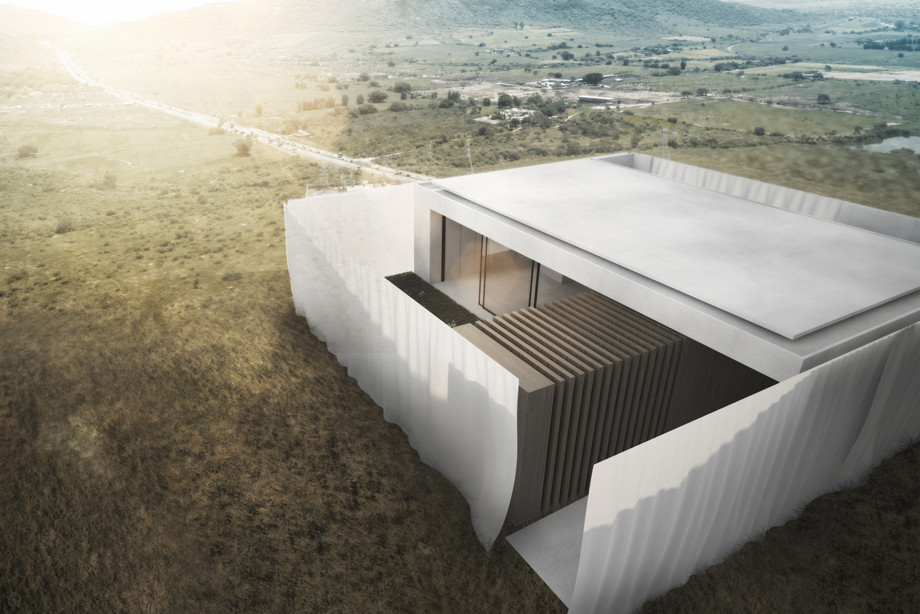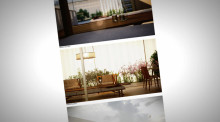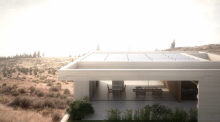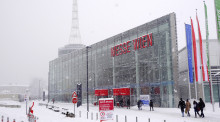Solar Decathlon 2013: VUT qualifies – Energy-self-sufficient house L.I.S.I. in the competition for sustainable building in California.
The “Solar Decathlon” is an international university competition to advance solar building technologies, hosted by the US Department of Energie. The team headed by the Vienna University of Technology was selected as one of just two European projects to compete in the upcoming event. “Team Austria” developed the high-tech, “energy+” house L.I.S.I., which will be displayed in October 2013 in California. The project we be formally presented on Friday, November 16 2012, at 9:30 in the ceremonial hall of VUT.
Project details: www.solardecathlon.at
Images for download: www.solardecathlon.at/press
The Solar Decathlon is the most challenging university competition in the field of sustainable building worldwide. It has showcased future living concepts since its inception as a biennial event in 2002. From 130 entries submitted by university and college teams from around the world in 2011, 20 projects were selected to present their vision by competing in the next Solar Decathlon 2013. The Vienna University of Technology’s Team Austria entry – the L.I.S.I. house concept (Living Inspired by Sustainable Innovation) — made the running as one of just 2 European teams to qualify in this round. LISI’s textile outer façade shell adapts to the needs of its occupants and actively supports meeting all the technological demands of a high-tech, net-positive-energy home.
Architects of tomorrow develop ideas today
As the project leader for Team Austria, Karin Stieldorf (Workgroup Sustainable Building at VUT), maintains, “the Solar Decathlon is an ideal opportunity to demonstrate Austria’s innovative potential in meeting the biggest technological challenges of our time.” The development of the atrium house prototype dubbed “LISI” was driven by the globally rising need for compact, affordable, and energy efficient housing in urban-peripheral environments. She adds that, “Over the course of three semesters, Team Austria student teams designed and developed a variety of concepts addressing a range of issues, for instance, regarding floor plan layout, interior design, and façade systems… The best ideas were integrated into the competition project after extensive consultation with experts, that is, structural engineers, energy consultants, and system manufacturers.”
High-tech for the needs of today and tomorrow
LISI’s integrated flexibilty allows the core energy management strategy to be effective in any climate zone with minimal adaptations. Active solar modules are integrated in the building envelope’s construction, in addition to the development of complex heating and cooling system controls to optimize the interworking of active and passive energy flows. Through audiovisually enhanced scenarios, an interactive user manual explains how to optimize the house’s time-dependent power usage under variable conditions. The wood-based cladding system was co-developed with graduate students from the University of Applied Sciences Kuchl in Salzburg.
Solar Decathlon
What’s special about the Solar Decathlon with regard to building practice: The prototypes are built full-scale and opened to the general public for 10 days of everyday-duty assessment. As in the Olympic decathlon, the competitors are evaluated in 10 contests. The overall winning project has to prove itself in such terms as architectural design quality, optimal energy efficiency, and economic affordability. Competitive house prototypes must operate solely on self-produced energy sources to cover the demand for heating, cooling, warm water, and home appliances.
Continued education and public awareness
The goals of the Solar Decathlon are wide-ranging: educate students in the field of renewable energy and sustainable building, raise public awareness about the potentials of zero-emission housing, as well as promote new technologies for solar energy production.
Building the future together
To translate our vision into reality, Team Austria is actively seeking potential partners and sponsors who share a convincing passion for solutions that create a better – more authentic, ethical, compelling, excellent – future.
The L.I.S.I. house is being developed in cooperation with the Austrian Institute of Technology (AIT), as well as the Universities of Applied Sciences in St. Pölten and Kuchl. Project partners include IG Passivhaus, the Austrian Federal Ministry of Innovation and Technology (bm:vit) and the Embassy in Washington/DC, as well as the Austrian National Research Fund (Forschungsförderungsgesellschaft).
Contact:
DI Dr. Karin Stieldorf, Ass.-Prof.
Arbeitsgruppe für Nachhaltiges Bauen
Abteilung Hochbau und Entwerfen
Institut für Architektur und Entwerfen
Technische Universität Wien
Gußhausstr. 30, 1040 Wien
T: +43 1 58801 253 441
M: +43 699 14 11 89 32
E: karin.stieldorf@tuwien.ac.at
www.h1arch.tuwien.ac.at
Information and facts:
Organizer: U.S. Department of Energy, Washington, DC
Exhibition of the houses: October 3. – 13. 2013,
Orange County Great Park, Irvine, California, USA
Submission: since 2002
Applicant 2013: about 130 Universities
Winner 2011: University of Maryland, USA
Winner 2009: Technische Universität Darmstadt
Visitor 2011: 357.000 at exhibition site



 Follow
Follow


